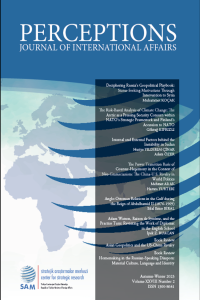Abstract
References
- References are indicated in the article.
The Power Transition Basis of Counter- Hegemony in the Context of Neo-Gramscianism: The China-U.S. Rivalry in World Politics
Abstract
Contrary to the traditional perspective of international relations theories, neo-Gramscian theory perceives hegemonic structure and power transitions in the international system as a result of both material and social interactions. Inspired by neo-Gramscian theory, this article argues that as in hegemony, counter-hegemony is also built on consent, which is created by non-military instruments. Among many instruments building consent, the article focuses on economic, institutional, and ideational ones that make the counter-hegemonic model attractive. In this sense, the rising power must invoke non-material forms of consent to build its “legitimate order” in the same way the hegemon invokes these to maintain its predominance. The article explores counter-hegemony processes via a comparative historical case study of developments in the Pax Britannica and Pax Americana systems. In
doing so, it juxtaposes the U.S. positions, initiatives, and counter-hegemony models against Pax Britannica, and those of China against the present Pax Americana. The regional and global reflections of China’s counter-hegemony model is analyzed through a neo-Gramscian framework with reference to the U.S. counter-hegemony projection.
References
- References are indicated in the article.
Details
| Primary Language | English |
|---|---|
| Subjects | Politics in International Relations |
| Journal Section | Articles |
| Authors | |
| Publication Date | December 26, 2023 |
| Published in Issue | Year 2023 Volume: 28 Issue: 2 |


